 | | A LABORATORY PUMP WITH A PENDULUM |
|
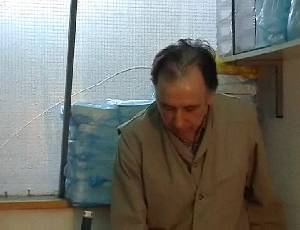 | I will demonstrate the laboratory pump
to show the efficiency and differences, |
|
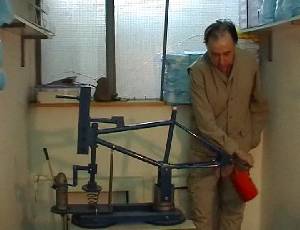 | | compared with current mechanisms. |
|
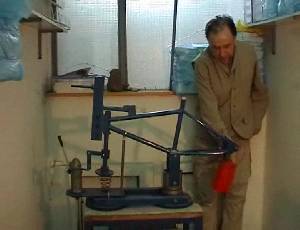 | On one side, there is a physical pendulum,
whose oscillation is easy to maintain. |
|
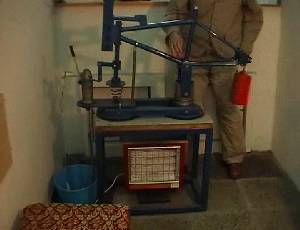 | There is also a two armed lever,
with the fulcrum, here. |
|
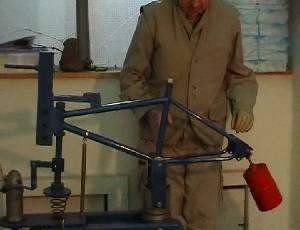 | On the shorter arm we will not use the
usual effect of the simple machine. |
|
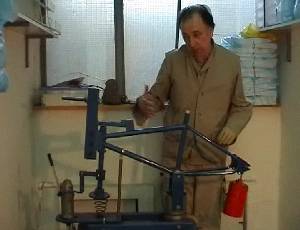 | Mechanical work is on the longer,
heavier arm. |
|
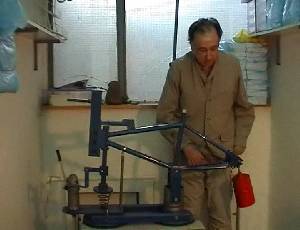 | Therefore, we actually get the
counter-lever, |
|
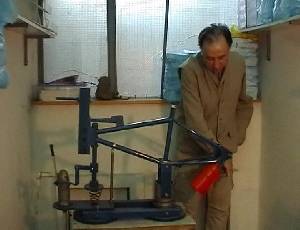 | | since the pendulum is on the shorter arm. |
|
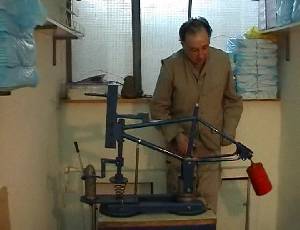 | The pendulum is, of course, very easy
to stop, |
|
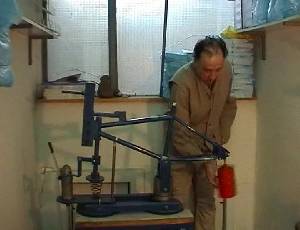 | but it is virtually impossible to do
the same with the lever. |
|
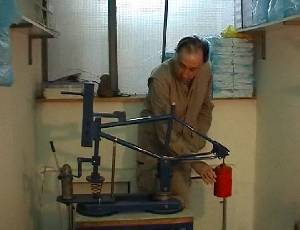 | Obvious advantage of double oscillations
can be seen by the maximal effort here. |
|
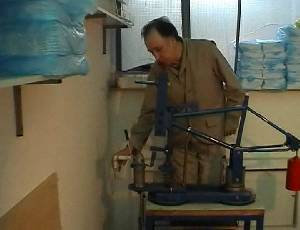 | The flow has been narrowed, so that the
effort is maximal when pumping. |
|
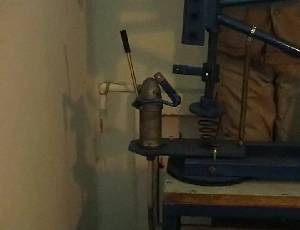 | It can bee seen how hard it is to pump
water or any other fluid, |
|
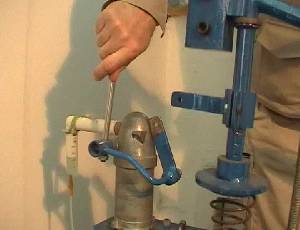 | | using simple or double oscillations. |
|
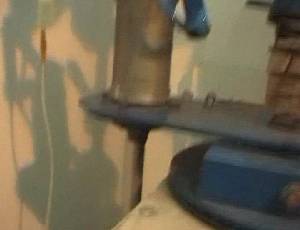 | Now, that the arm of the lever is similar
to the arm of the pendulum, |
|
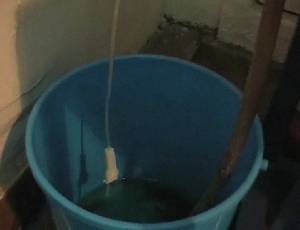 | | even the amplitude is similar. |
|
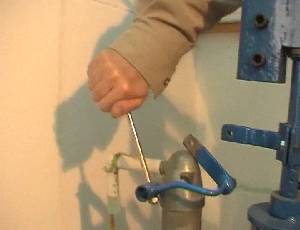 | Therefore, it is easy to confirm that
this is the more difficult way to do it. |
|
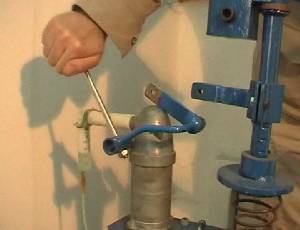 | Anyone can try it. Because of the
narrow flow, it is rather difficult. |
|
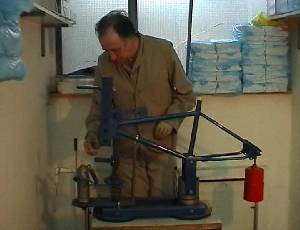 | | There is also something else...so, |
|
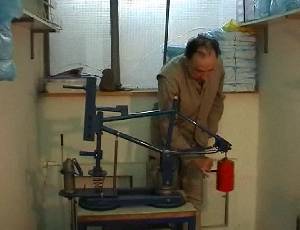 | the oscillation of the pendulum causes
the oscillation of the lever. |
|
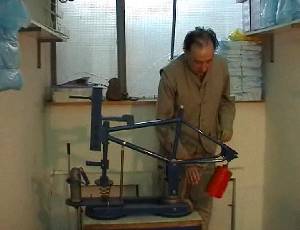 | | So, what happens next? |
|
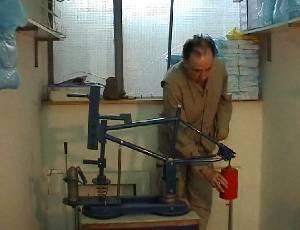 | If you observe the oscillation without
the pendulum, it last for a long time. |
|
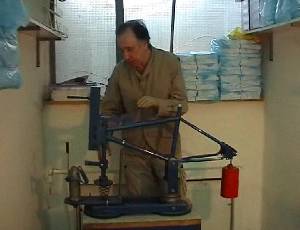 | However, when there is mechanical
work involved, |
|
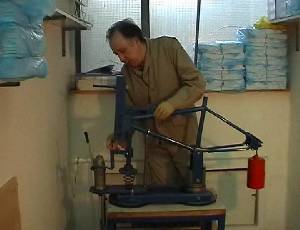 | and if we press this spring to have
oscillations, |
|
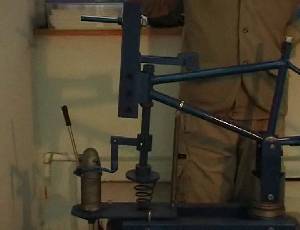 | the energy is spent very quickly,
i.e. it turns to mechanical work. |
|
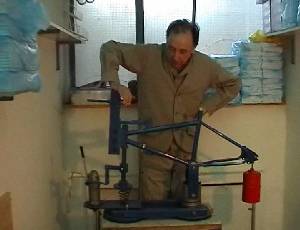 | Major amortization occurs because
of mechanical work. |
|
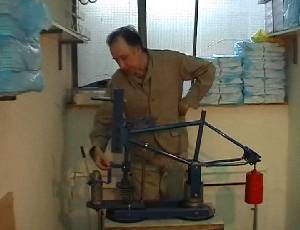 | We can try the same if put the pendulum
out of balance, |
|
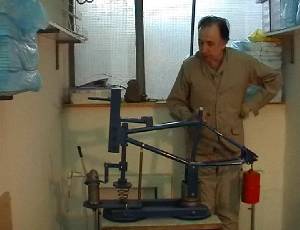 | to see whether it will stop because
of mechanical work. |
|
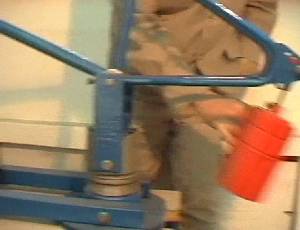 | There is no major amortization, despite
mechanical work. |
|
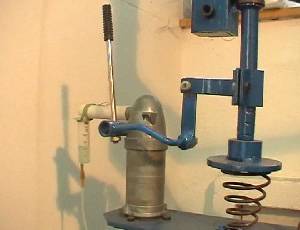 | The pump and the narrow flow are
creating a major resistance, |
|
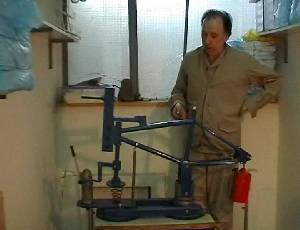 | but we still do not have reduced energy
of the pendulum. |
|
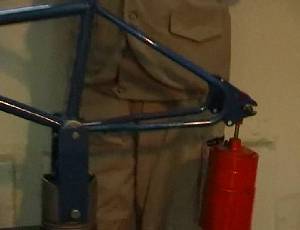 | This is a somewhat independent reference
system, |
|
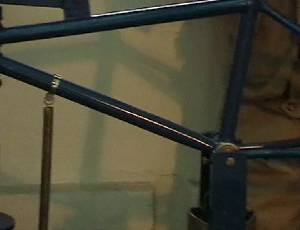 | | not connected to mechanical work. |
|
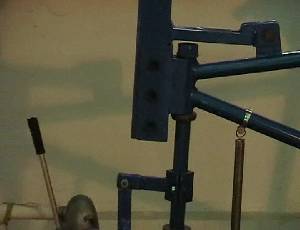 | If the pendulum was suddenly stopped,
and if we would have major amortization, |
|
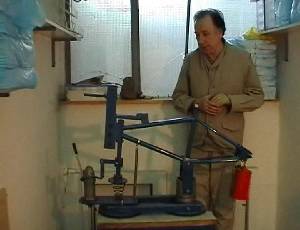 | the results would be the same as with
the previous experiment. |
|
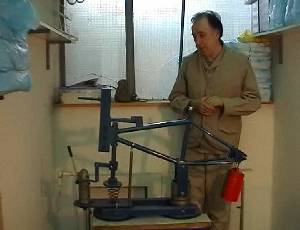 | However, that does not happen,
despite trying to stop this part. |
|




































